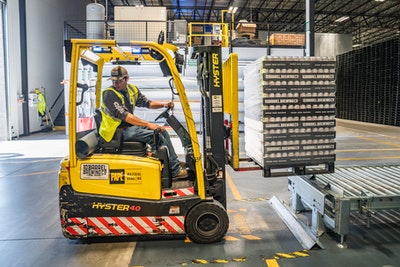5 Reasons Companies Are Using More Temporary Employees

In 2020, companies are using more temporary employees than ever before. In fact, according to the American Staffing Association, staffing companies in the U.S. hire around 17 million temporary and contract employees last year alone.
Their reasons for doing so vary widely. Some being more ethical than others. Today we aren’t going to discuss companies trying to cut costs by using temporary employees. Instead, I’m going to go over the more legitimate reasons why thousands of companies across the nation are using more temporary employees than ever before.
From testing new business processes to dealing with rapid expansion, temporary employees have found a stable place in the still strong American economy.
#1 Testing New Business Processes or Practices
Often times when a company wants to test out new processes or practices they’ll hire temporary employees with experience their current employees don’t have. That way they can test their new business operations without having to hire new full-time employees.
These businesses are essentially ‘test-driving’ new business operations in hopes they will be profitable and the temporary hires can either become full-time employees or can help to train their replacement full-timers. This tactic is becoming increasingly common in an era where technology drives business changes more rapidly than ever before.
#2 Rapid Expansion
Companies who witness rapid business expansion also often utilize temp employees to fill employment gaps. Amazon is one of the most common examples of this tactic.
When the company rolled out thousands of new factories for their Amazon Fresh department, they were forced to hire hundreds of thousands of temporary employees to fill all the open positions. Sometimes these positions lead to more permanent roles, but often companies like Amazon attempt to save money by keeping as many employees in temporary roles as possible.
Still, filling thousands of positions with only full-time employees is nearly impossible, so if you want that rice cooker you got on Amazon to arrive at your door on time, then we’re going to need temporary employment.
#3 Seasonality
Seasonality is another reason companies like to hire temporary employees. When seasonal sales increase and companies need extra help, temp employees are the perfect solution.
Retail businesses are most often the ones that need this type of temporary employee. In fact, according to the Bureau of Labor Statistics, in 2018 alone U.S retail businesses hired 8.3 million seasonal employees. That’s a lot of temps.
Still, it’s not only retail businesses that utilize temp employees. Many hotels, spas, resorts, cruise ships, and other seasonal businesses also hire temps. These businesses are reliant on workers that can be let go at the end of the season because it simply doesn’t make sense to hire someone year-round to say, staff a ski resort.
#4 Maternity/Paternity Leave
Maternity/Paternity leave is another reason that companies are often forced to hire temporary employees. The Family and Medical Leave Act of 1993 (FMLA) made companies with over 50 employees give at least 12 weeks of unpaid leave to expecting mothers.
In recent years, there has been an expansion of maternity/paternity leave in the U.S as well, with hundreds of companies improving or extending their maternity leave benefits. That means this form of temporary employment will only grow in the coming years.
For example, if one of your human resources all-stars has to take 12 weeks off for maternity leave, you really can’t go without an HR pro for that long. That means companies are willing to pay hr staffing firms that will help fill the gap with temp employees until the full-time employee returns.
#5 Temporary to Permanent
Some smaller companies who can’t afford human resources departments are forced to hire temporary employees in order to make sure they’ll work out long term. This is called temp to perm hire.
Small and medium-sized businesses will hire an employee under a temporary contract so they can hold what is essentially an extended interview. They’ll be able to discover if their temp is a cultural fit if they’re able to do all the required functions of the full-time position, and more, all without risking the costs and problems that arise when a full-time employee doesn’t work out.
Temp to perm hiring is the best form of temporary employment for workers, it’s really the holy grail that many temps are looking for so they can find more stable work experience.
At the end of the day, no matter if companies are hiring temps for maternity leave or to test out potential permanent employees, there is clearly a huge market for temporary work. I expect with the growth of the gig economy and increasing technological advancement temp employment will only continue to grow in the coming years as well.
That will surely bring with it both bad and good dynamics, as many workers will struggle to find more stable, long-term employment. Still, if you had a choice between no job and a temporary job, I’m sure you’d choose that temporary position. I know I would.
Is your company using temporary workers?






